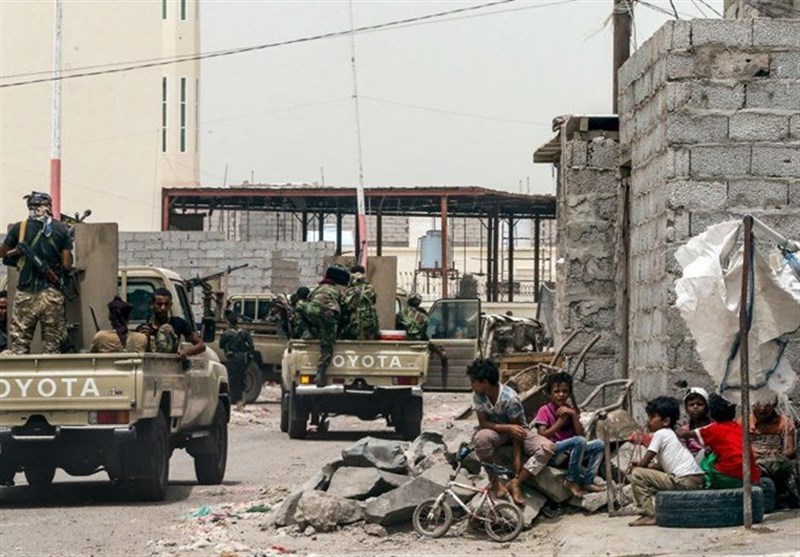The southern provinces, occupied by the Saudi-Emirati occupation ,are witnessing a dangerous escalation, especially after the return of the series of assassinations, which increased intensively during the past days, as part of an external plan that was secretly formulated among the leaders of the aggression coalition within what is known as the Riyadh Agreement.
Aden province witnessed 10 assassinations against security officers during the past week.
Aden Governor ,Tariq Mustafa Salam, for his part, explained that the growing assassinations in Aden and the escalation of fighting between the mercenary factions in more than one southern province come within the framework of the new Saudi-Emirati plan that was implemented last month, specifically after the announcement of the so-called Riyadh agreement.
Salam said in his statement to "Ansarollah" site that Aden province witnesses one or two assassinations each day, in addition to the number of dead and wounded people who were killed as a result of armed confrontations between the mercenary factions in a number of the occupied areas, which reached about 400 people.
The situation in the province is dangerous in light of the continuous mobilization of the mercenary factions, as well as the state of displacement of the population as a result of the fighting between the mercenaries ,he added.
The assassinations returned to the forefront as a prelude to detonate the situation militarily in Aden province, which is also evident when the mercenary government push its elements within the so-called the presidential protection's first brigade forces to return to Aden.
When the southern transitional militia refuse to allow the traitor ,Hadi's, forces from entering the main cities, the latter resorted to the Cold War through imposing its military presence on the outskirts of the provinces ,under the control of the UAE-backed "transitional".
The traitor's militia, Hadi, station in Shabwa and Abyan provinces led to violent clashes between the two parties, using various types of weapons.
The clashes led to the killing of the deputy commander of the "transitional" organization in Ahwar and 4 others, in addition to the killing and wounding of 6 members of the forces loyal to the traitor "Hadi", who were presented in the name of "the first brigade as a presidential protection", backed by more than 50 vehicles and military vehicles, led by a Ma’rib sheikh, on its way to Aden.
Subsequently, the "transitional" forces pushed huge military reinforcements for its security belt forces to the front lines in the Sheikh Salem area in the city of Zanzibar, Abyan province, being afraid of that the Hadi forces might storm and control the city.
The "Southern Transitional" also summoned militias affiliated with it from Al-Dhalea province to cover the voids in contact lines with the government forces of the fugitive "Hadi" in Shakra area in Abyan.
Simultaneously, leaders affiliated with the "Southern Transitional" announced that they would burn any force advancing towards Aden, and would fight any force that prevented it from doing so.
It also threatened to arrest the Prime Minister of the mercenary government and the ministers in Aden if any forces advance towards Aden.
On the other hand, the traitor ,Hadi’s ,militias used dozens of militants from the Sabiha tribe, in order to enter Aden from its northern entrance, which led the “transitional” militias to summon dozens of their affiliates and deploy a large number of tanks and armored vehicles to confront the Al-Sabiha militants and prevent them from storming Aden.
The escalation reinforces the estimates of "international crises" that were expected with widening the scope of opposition to the Riyadh agreement on the ground from multiple southern blocs.
The "International Crisis Group" said that the agreement sets a "unrealistic" time frame to merge the competing military and security forces, and it will be unable to withstand due to the crisis of confidence between the two parties, as expected by the group.
And what reinforce its estimates is the expansion of the scope of anti-agreement on the ground by multiple southern blocs, as it happens in the province of Al-Mahra, where a broad alliance has begun to form in this direction, which has caused the displeasure of Riyadh.
Y.A







